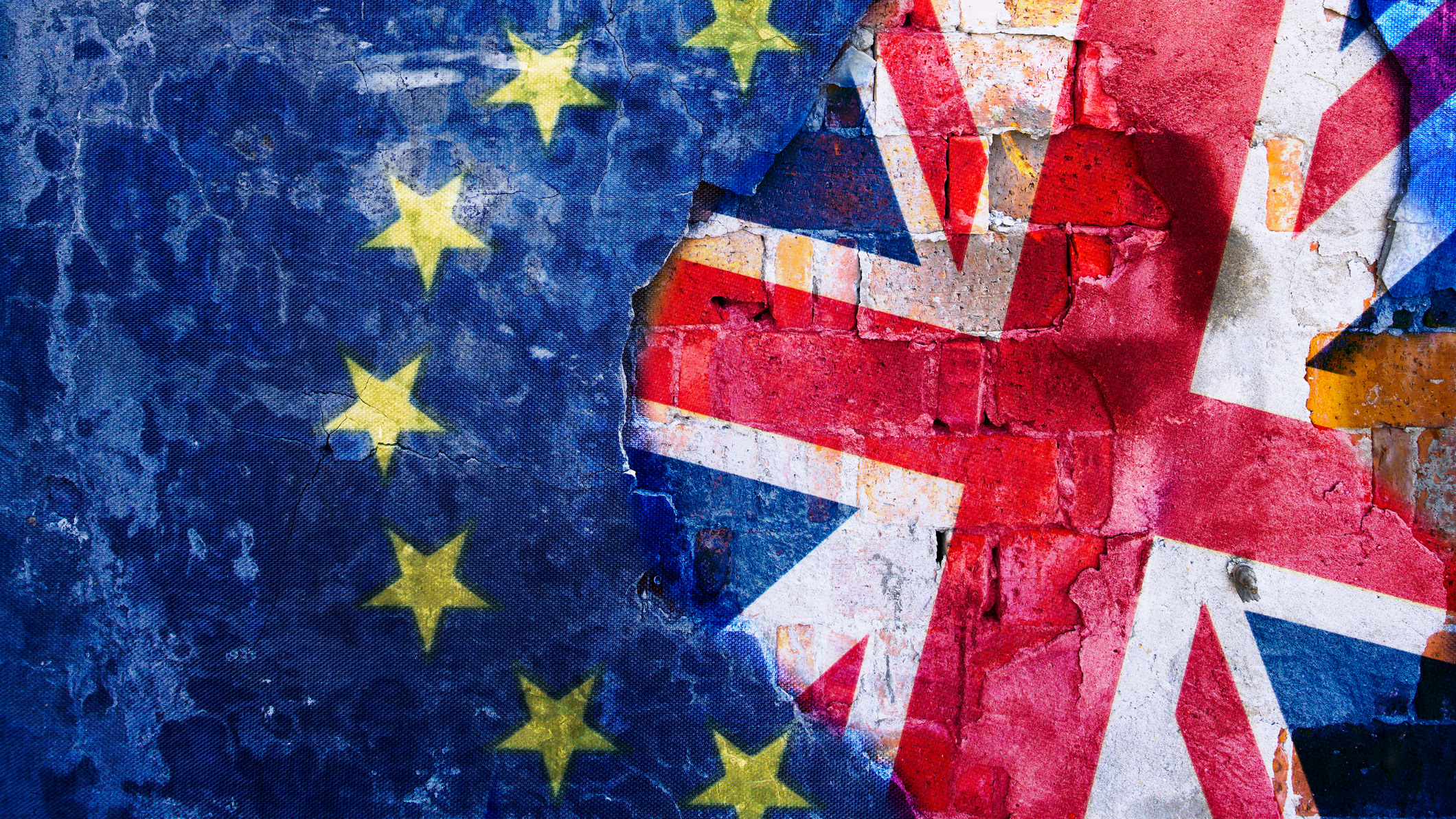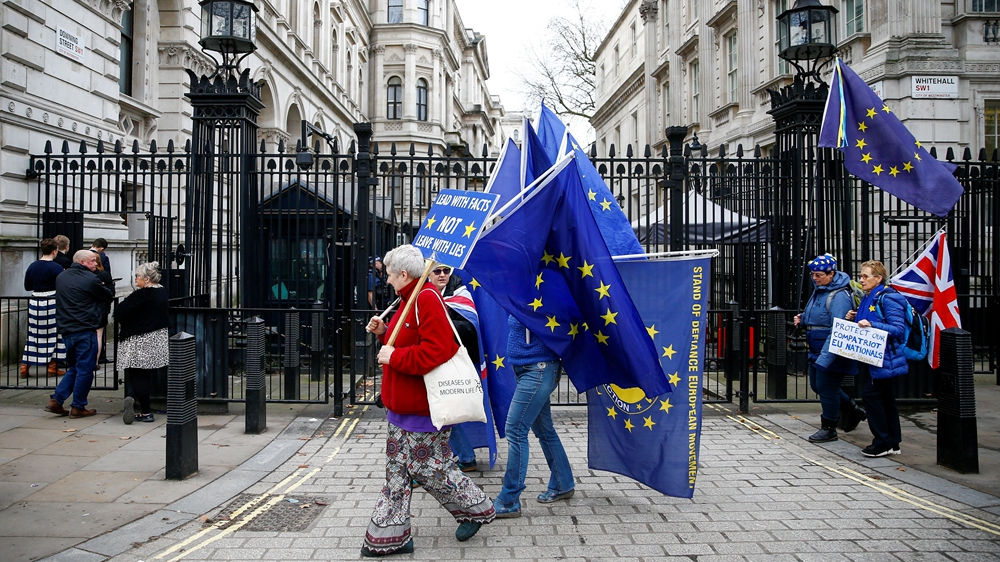
Editor's note: Amin Bagheri is a research fellow at the International Studies Association in Tehran. His primary research interest lies in international relations, transnational governance, international peace, and conflicts in the Middle East. The article reflects the author's opinions and not necessarily the views of CGTN.
Almost one hundred days have passed since Britain left the European Union. Meanwhile, it seems complicated to calculate the damage caused by this event along with the COVID-19 pandemic. However, some developments can still be considered independently, and a general assessment can be provided. While the EU and the UK have considered a close post-Brexit partnership, the events of about 100 days after the formal separation show the growing distance between Brussels and London.
Trade relations
Over the past hundred days, many UK businesses have faced exorbitant customs costs and cumbersome economic regulations, and the volume of trade relations with Europe, as Britain's most significant financial partner, has shrunk significantly. The volume of exports from this country to the EU in the first month after Brexit fell by 40.7 percent. Imports from the EU also declined in January.
Trade situation started to improve at the end of January. But two months after the UK left the EU, 74 percent of leading British companies faced delays in exchanging goods and services with EU markets, according to the UK-based trading group Make UK. The survey shows that more than half of British companies have complained about the rising costs of disrupted global trade due to the COVID-19 pandemic and customs inspections. Besides, more than a third of commercial companies have lost their sales and fear that this situation will continue to lead to a downturn in their business. However, the government claims that these developments have nothing to do with Brexit but due to COVID-19 restrictions.
Sectarian strife in Northern Ireland
The escalation of unrest in Northern Ireland has been accompanied by the destruction of public property and attacks on police over the past week. Concerns have been raised about sectarian strife's resurgence and violence between pro-Irish Catholic nationalists and pro-British Protestants. Since last January, when Britain ended its membership in the European Union, groups loyal to the country in Northern Ireland have repeatedly protested against barriers to importing Britain's goods, calling the agreement a violation of the Good Friday Agreement. Clashes also escalated recently after Northern Irish police decided not to prosecute Irish Republican Party (Sinn Féin) leaders for attending the funeral of a former Irish Republican Army intelligence commander. The event took place last year when coronary restrictions, including maintaining social distance, were in place. Meanwhile, the spread of the riots in Belfast's streets is so worrying that the United States, along with the leaders of Northern Ireland, the Republic of Ireland, and the United Kingdom, has called for calm, but no progress has been made.

Anti-Brexit protesters in front of Downing Street in London, UK, January 8, 2020. /Reuters
Anti-Brexit protesters in front of Downing Street in London, UK, January 8, 2020. /Reuters
Prohibition of shellfish imports from Britain to Europe
The European Union (EU) has recently banned the import of oysters from British Class B water. Under long-standing EU law, imports of such mollusks from non-EU countries are only possible if caught in the highest quality waters. The European Union is still allowed to export oysters from British Class A waters, captured in cleaner waters. Although the oyster export market is small and worth 12 million a year, it is many fishermen's livelihood. A large oyster fishing company in the southwestern English town of Cornwall has said it has lost 99 percent of its trade following a ban on oyster exports to the European Union. Earlier, British media reported a 68 percent drop in British exports to the EU compared to the same period last year. The decrease, according to experts, was due to the coincidence of the COVID-19 pandemic and Brexit.
Conclusion
After 47 years of membership, Britain officially left the EU. The government says it has reached an agreement on the future of trade cooperation with the European Union. The present agreement does not give Britain the freedom to fish in its waters, does not exempt it from EU rules and standards, and does not give it enough freedom to allow Britain to sign independent trade agreements with other countries. The British people will gradually realize the futility of Brexit. Britain did not gain any special privileges in this agreement. What is interpreted as maintaining sovereignty or taking control of the country and destiny is practically meaningless with the restrictions imposed in this agreement. Besides, tensions between Britain and Europe have intensified in recent months due to disputes between the two sides over the export of the COVID-19 vaccine, and it continues.
In a word, what has happened in these hundred days has undoubtedly not been satisfactory on both sides of the deal. Furthermore, the trade balance in the first month of 2021 did not meet expectations, and COVID-19 marked a significant shift in UK-EU political interactions.
(If you want to contribute and have specific expertise, please contact us at opinions@cgtn.com.)

